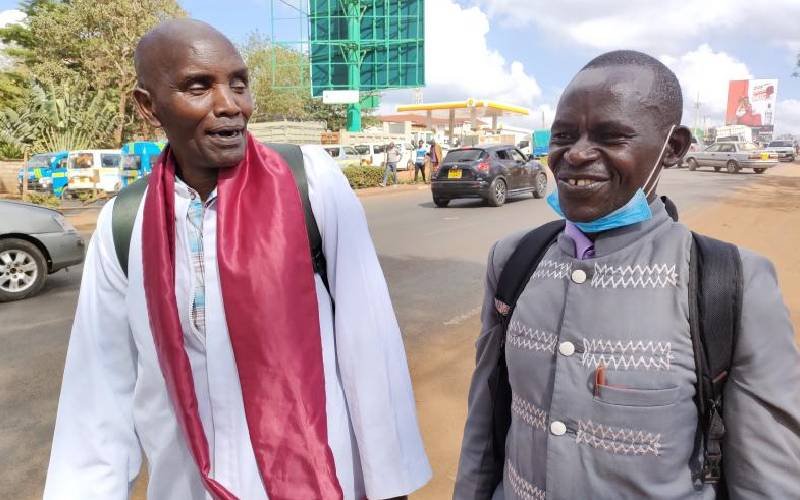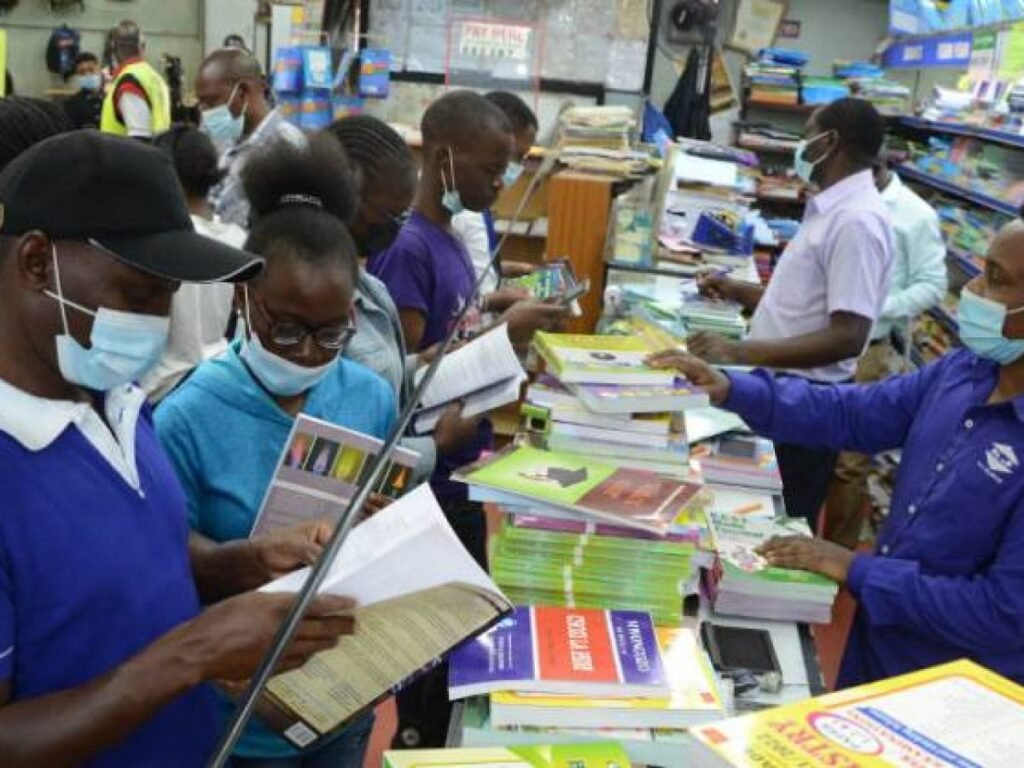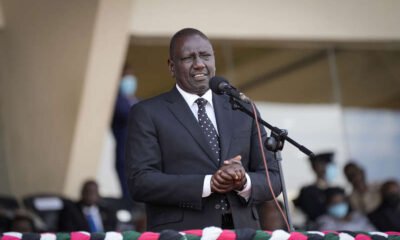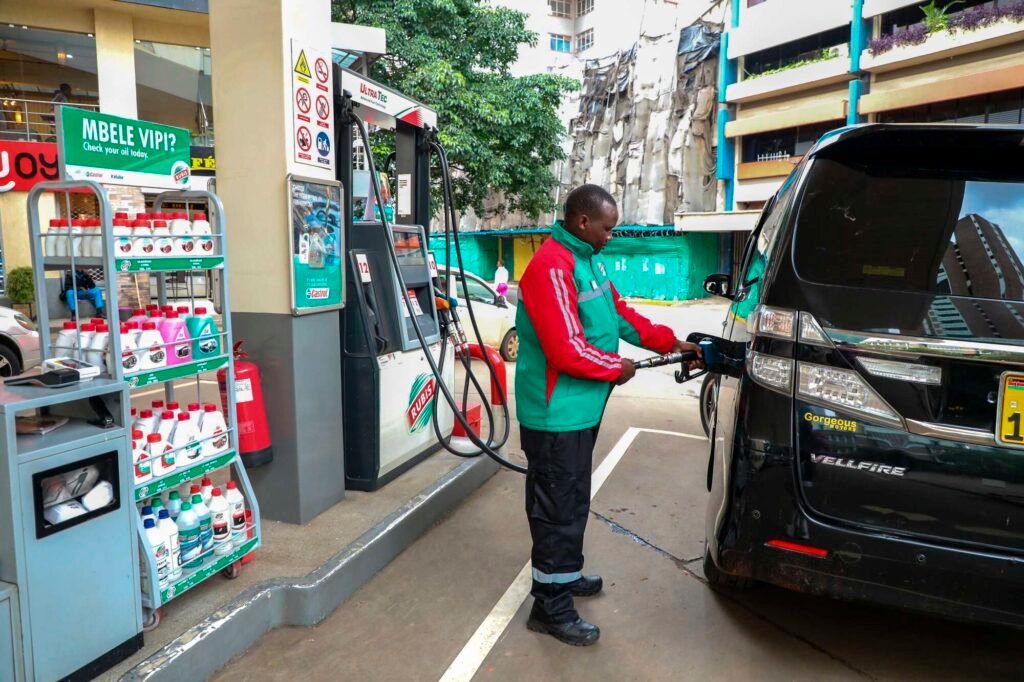General News
Meru Bishop On 300kms Walk To Deliver Prophesy To DP Ruto

A bishop is set to cover 300 kilometres on foot to deliver a divine message to Deputy President William Ruto.
Traversing the terrain from Meru to Nairobi, Bishop Peter Machiuka, 63, of the Harvest Christian Church in Igembe North, is counting his footsteps as he continues with prayers on his journey to the DP’s office in the city.
Guarding the prophecy as a top-secret to be only delivered to the DP in person, he had passed Embu town by Saturday, a day that marked the third day since he started the journey from his Kamweline village in Kabachi ward, Igembe North.
The bishop claims God spoke to him and instructed him to walk as he prays for peaceful elections next year.
Bishop Machiuka said he will camp at Ruto’s residence or office until he can deliver the special message.
“God has sent me to have a prayer walk from Kamweline village in Kabachi, Igembe North in Meru County. I will walk to Nairobi while praying as instructed by God and to be able to safely deliver a prophecy to the DP Ruto,” said Bishop Machiuka, who is in charge of the Eastern region.
He further said he was also praying for Kenyans to remain peaceful and united irrespective of their opinion, tribal and political affiliations, to have political tolerance throughout the 2022 political campaign.
He said he was also tasked to pray for President Uhuru Kenyatta to have wisdom while leading the nation through the challenging Covid-19 pandemic and the transitional general elections.
When we caught up with him at Embu, the journey was tough, but he has to fulfil God’s prophesy to avoid any wrath.
“At my age, I can hardly cover 40kilomeres daily because I easily get tired,” he said.
The bishop said God wanted Kenyans to appreciate that a leader comes from him and that they should respect whoever is victorious in the 2022 elections.
While quoting the Bible, he noted that God chose David as King while he was still a small boy and had rejected his brothers, who had no option by accepting God’s will.
He also appealed to all elected leaders to accept whoever wins in the elections.
Pastor Julius Mukalia, who is accompanying the bishop on this journey, said he decided to give him moral support in the excruciating trek while praying for the country.
“We can only be delivered from our inequities and daily challenges if we trust and pray for forgiveness from the maker,” he said.
He noted the residents were facing various challenges, which include the Covid-19, lack of food, family breakdowns and increasing cases of suicide due to depression.
The journey starts from Kamweline – Mutuati- Laare- Kangeta – Meru town – Chuka – Embu- Mwea – Kenol – Thika – Nairobi.
General News
IMF Criticizes Kenya’s Fuel Subsidy Re-Introduction, Warns of Budget Distortion

The International Monetary Fund (IMF) has criticized Kenya for re-implementing the fuel subsidy scheme, expressing concerns that the lack of funds to pay oil marketers could distort the budget.
Despite a previous commitment by President William Ruto in 2022 not to subsidize pump prices, the government reintroduced the subsidy, preventing petrol and diesel prices from reaching higher levels in October 2023.
The IMF argues that the subsidy was applied without available funds, as the Treasury has yet to pay oil marketers at least Ksh9 billion ($55.6 million) accumulated from the previous year. President Ruto’s decision to reinstate subsidies goes against conditions set by the IMF for accessing loans.
Petrol and diesel prices, which were Ksh217.36 ($1.34) and Ksh205.47 ($1.27) respectively in Nairobi in October 2023, remained lower than the potential Ksh220.43 ($1.36) and Ksh217.11 ($1.34) due to the subsidy. However, the IMF disapproves of the decision, emphasizing that the removal of the subsidy was a key condition for a 38-month budget support scheme.
The IMF criticizes the prolonged process of forming a taskforce and delays in implementing decisions regarding fuel pricing.
The removal of the subsidy in May of the previous year led to record-high pump prices, crossing the Ksh200-mark later in the year due to a combination of subsidy removal and a VAT increase to 16 percent.
Kenya’s administration, faced with rising fuel costs, chose to reinstate the subsidy, prompting the IMF to raise alarms over the lack of budgeted funds and potential distortions in the country’s financial plans.
The ongoing disagreement highlights the challenges and consequences associated with balancing domestic economic policies and meeting international financial commitments
General News
Parents in Meru County Turn to Second-Hand Books Amid Economic Hardships

As the back-to-school rush season unfolds in Meru County, a growing number of parents are making a strategic choice to purchase second-hand books for their children.
This decision stems from the challenging economic conditions that have prompted families to seek ways to cut costs.
Among these parents is Ms. Prisca Gakii, who revealed that opting for second-hand books allows her to save money, which can then be allocated towards essential expenses like school fees.
She highlighted a practical advantage for Form-One students, emphasizing that using older books can protect them from potential theft, as new books often become targets for less scrupulous classmates.

Ms. Gakii pointed out a notable price difference, citing an example of a new Oxford dictionary priced at almost Sh1,900, compared to a used one available for Sh1400.
She justified her preference for the older but more affordable option, emphasizing that they contain the same content.
Janet Wamuyu, a second-hand books trader, shed light on the lucrative nature of their business during the opening of the first term, which coincides with the peak season.
As learners transition to new grades or classes, there is a heightened demand for various books, including dictionaries, Kamusi, and Golden Bells.

Wamuyu explained that this period, especially when Form-One students are joining school, facilitates easy acquisition of books for new stock.
The trading process involves exchanging books for the next grade or class at a lower rate, providing an economical alternative for parents instead of purchasing an entirely new set of books.
She further noted that their source of new stock comes from parents whose children have completed their studies and no longer require the books.
Despite the success during the peak season, Wamuyu acknowledged the challenges faced during other times of the year when only a few revision books are in demand, highlighting the cyclical nature of the business in Meru County.

















